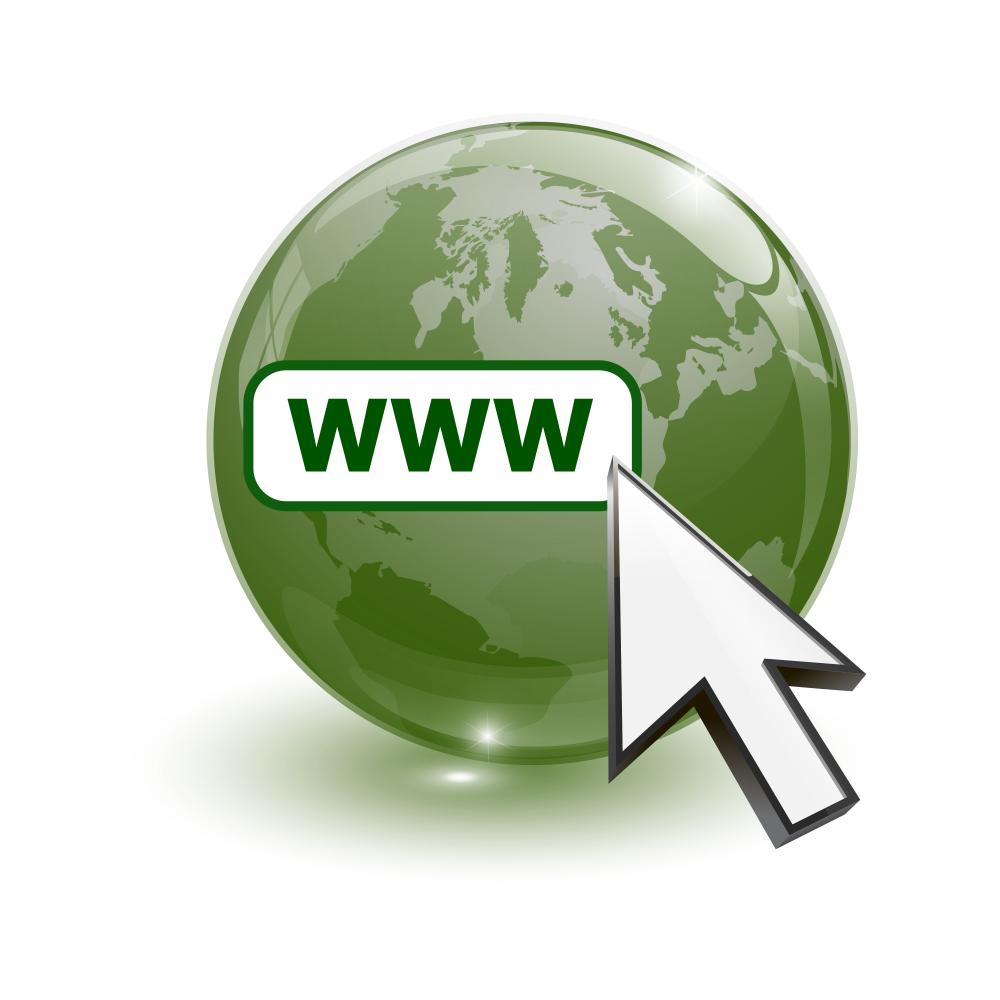The Importance of Domain Authority
In the digital marketing realm, domain authority serves as a critical benchmark for a website's potential search engine visibility. Developed by Moz, this metric ranges from 1 to 100, predicting a website's ability to rank on search engines. Checking domain authority for free can empower digital marketers, SEO specialists, and site owners to optimize their strategies effectively.
As someone with over two decades in the industry, I've seen firsthand how regularly monitoring domain authority can identify strengths and vulnerabilities. A strong domain authority typically indicates a robust backlink profile and high-quality content. Therefore, incorporating domain authority checks into your routine can reveal valuable insights into your site's health.
By focusing on enhancing your website's domain authority, you can not only climb search engine rankings but also gain credibility and trust amongst your audience. It's an essential tool for staying ahead in the competitive digital landscape.
How to Check Domain Authority for Free?
Checking domain authority for free is a straightforward process and can be accomplished by utilizing reliable tools available online. Here's a quick step-by-step guide to get you started:
- Visit a trusted tool like Moz DA Checker.
- Enter the URL of the domain you wish to analyze.
- Hit 'Check' to generate a comprehensive report detailing domain authority scores.
- Review the data, looking closely at metrics such as Page Authority and backlinks.
These tools often allow for single or bulk checks, making it easy to analyze multiple domains simultaneously. Explore features like keyword rankings and competitor analysis to get a broader view of your site's position in the market.
Features of Moz DA Checker
At Moz DA Checker, we strive to provide users with unparalleled features for accurate domain analysis. Our platform supports:
- Bulk Domain Authority Checks: Simplify the analysis of multiple domains at once.
- Real-Time Data: Access the latest insights driven by reliable databases like Moz and Ahrefs.
- Comprehensive Reports: Receive detailed metrics on page authority, backlink profiles, and more.
Utilizing these features, you can make informed decisions about your SEO strategies and track your progress over time. The ability to check domain authority for free repeatedly ensures that you are consistently up to date with the latest data.
Impact of Domain Authority on SEO
As an SEO veteran, I've witnessed domain authority play a pivotal role in shaping a site's SEO performance. High domain authority indicates a website that search engines trust, increasing the likelihood of being recommended to users. This metric is vital not only for ranking but also for assessing competitor performance and fine-tuning link-building efforts.
By regularly checking domain authority for free, you can identify areas ripe for improvement. Whether it's bolstering your content strategy or refining your backlinks, keeping tabs on this metric is a proactive way to enhance your site's reputation and SEO results.
Remember, while domain authority is indicative of SEO health, it should be used in conjunction with other metrics for a holistic understanding of your website's performance.
Checking domain authority for free is crucial for anyone looking to maximize their site's search engine potential without incurring additional costs. This practice allows for ongoing evaluation and adjustment of SEO strategies, providing actionable insights that don't break the bank.
For businesses and individuals alike, the ability to assess domain authority at no cost ensures accessibility to essential data, fostering a competitive edge in search rankings. By leveraging free tools, you can optimize your digital presence efficiently and economically.
The Importance of Domain Authority
In my two decades as an SEO professional, I've seen the significance of domain authority transform entirely. This metric, often a subject of SEO discussions, serves as a critical benchmark for website reputation. Tools like Moz DA Checker provide insights into your site's domain authority, allowing digital marketers to strategize for higher search engine rankings. While some may dismiss its direct impact on SEO, understanding your score can be invaluable.
Domain authority reflects a website's credibility and its potential performance in search results, a nuanced metric developed by Moz. Evaluating and comparing your score against competitors can provide a strategic edge, particularly in competitive markets. It's a reliable proxy that indicates the quality and quantity of backlinks, an essential factor in Google's algorithm.
How to Check Domain Authority
Checking domain authority is straightforward with the right tools. Here's a simplified process to ensure you're getting the most accurate results:
- Access the Moz DA Checker platform.
- Enter the domain URL or list of URLs you wish to evaluate.
- Initiate the analysis and review the results, including both Domain Authority (DA) and Page Authority (PA).
- Compare these scores with competitors to identify areas for improvement.
Regularly performing these checks will help you track changes over time, allowing for adjustments in your SEO strategy.
Why Does Checking Domain Authority Matter?
For anyone invested in SEO, the importance of regularly checking domain authority cannot be overstated. This metric acts like a thermometer for your website's health in search engines. High domain authority often correlates with increased visibility and traffic, factors that are crucial for online success. It's not just about numbers; it's about gauging your website's competitive standing.
Many in the industry, myself included, agree that domain authority offers a way to benchmark success. It gives a tangible measure of your SEO efforts, highlighting the effectiveness of your backlink strategies. By checking domain authority, you can better align your website's goals with those of high-ranking websites.
- Identify potential improvements.
- Target high-authority backlinks.
- Enhance competitive analysis.
Effective Strategies to Improve Domain Authority
Building domain authority is a task that requires ongoing effort and a strategic approach. The key lies in creating quality content that naturally attracts backlinks. Based on my experience, here are some strategies that have proven effective:
First, focus on producing content that engages your audience and naturally encourages sharing. The more your content is linked to from reputable sites, the higher your domain authority climbs. Additionally, collaborate with influencers in your industry to amplify your reach and credibility.
Second, conduct regular audits of your backlink profile using tools like Moz DA Checker. Identify toxic links and eliminate them to maintain a high-quality network of backlinks. Finally, optimize internal linking structures to distribute authority throughout your site effectively.
What Are Common Concerns About Domain Authority?
Domain authority is a widely recognized metric, but it's not without its complexities. One frequent question is: "Does a low domain authority mean poor SEO?" It's crucial to note that domain authority is just one of many factors. A lower score doesn't automatically equate to a bad SEO strategy; it might simply reflect recent changes in linking practices or site content.
Additionally, there are concerns about the reliance on domain authority for evaluating a website's potential. While useful, it's not an official ranking factor used by Google. It's best employed as one component of a broader SEO strategy, complementing other metrics such as traffic data and engagement levels. Understanding these nuances is vital for leveraging the full potential of domain authority insights.
Why Is Website Authority Important?
Domain authority plays a crucial role in determining a website's potential in search engine rankings. For over two decades, I've witnessed the evolution of SEO landscapes. A website's authority can often dictate its visibility on search engines--a vital factor for digital marketers, SEO experts, and business owners alike.
Having a high domain authority means that search engines see your site as trusted. It's akin to having a good reputation in real life; people trust you and value your opinions. In the same way, a stronger domain authority means search engines are more likely to rank your content higher, increasing your organic traffic.
This metric doesn't exist in isolation. It correlates with your site's ability to attract quality backlinks, ensuring you have a solid link-building strategy in place. Thus, tools like Moz DA Checker and Ahrefs are invaluable for any SEO strategy.
How to Check Domain Authority with Ahrefs
Checking domain authority with Ahrefs is a straightforward process, essential for anyone serious about SEO. Here's how you can do it:
- Visit the Ahrefs Website: Log into your Ahrefs account. If you don't have one, consider their free trial to explore the features.
- Use the Site Explorer Tool: Navigate to the Site Explorer tool and enter your domain or the domain you wish to examine.
- Review the Domain Rating: Ahrefs will provide a Domain Rating, which is their version of domain authority, based on backlinks and referring domains.
- Analyze Competitors: Compare your score with competitors to gauge your relative standing in the industry.
What Is Ahrefs and How Does It Measure Authority?
Ahrefs is a prominent tool in the SEO industry, known for its comprehensive link index and analysis tools. But, how exactly does it measure domain authority? The secret lies in its proprietary metric, Domain Rating (DR), which considers:
- The quantity and quality of backlinks to a site.
- The domain rating of those linking websites.
- How many unique domains each linking site connects to.
Domain Rating is plotted on a 100-point scale, reflecting its strength in attracting new backlinks from authoritative websites. This provides a solid indication of the site's potential performance in search results.
Does Ahrefs' Domain Rating Affect Google Rankings?
Many wonder if Ahrefs' Domain Rating directly affects Google rankings. The direct answer is no; however, there's more to the story. While Google itself doesn't use the Domain Rating metric, sites with higher scores often perform better in search results. My extensive experience in SEO reinforces that while correlation doesn't equal causation, the indirect benefits of a high Domain Rating--like more backlinks and higher traffic--are undeniable.
Tips for Improving Domain Authority with Ahrefs
Boosting your domain authority requires a well-thought-out approach. Here are some strategies I recommend:
1. Focus on Quality Content: Regularly publish high-quality, relevant content that others will want to link to. This is the foundation of a strong domain.
2. Build Strong Backlinks: Utilize Ahrefs to identify link-building opportunities from reputable sites. Look for broken links or guest posting opportunities to earn backlinks.
3. Monitor Competitors: Keep an eye on competitors using Ahrefs' tools. Understand what works for them and see how you can apply those insights to your strategy.
4. Conduct Regular Audits: Regularly audit your site for issues that could impact your authority, like broken links or outdated content. Use Ahrefs' Site Audit tool to streamline the process.
Using a tool like Moz DA Checker is undoubtedly one of the most efficient ways to assess domain authority without incurring any costs. The process is straightforward--simply input your domain URL, and you'll instantly get detailed insights into your site's authority. From my personal experience as an SEO specialist, I often find that the ability to check multiple domains simultaneously is invaluable, especially when managing several projects at once. It provides instantaneous feedback, allowing you to make quick adjustments to your strategies. If you're looking for a user-friendly option that doesn't require registration or hidden fees, this tool is a trustworthy choice. Why not give it a try and see how your site measures up?
How do Moz and Ahrefs differ in measuring domain authority?
Both Moz and Ahrefs offer valuable metrics for evaluating a website's authority, but they do so in different ways. Moz uses a metric called Domain Authority (DA), which predicts a site's ability to rank in search engine results based on a 1 to 100 scale. It's particularly effective for understanding the quality and quantity of your backlinks. In contrast, Ahrefs relies on Domain Rating (DR), which also considers the link-building profile but places a stronger emphasis on the strength of backlinks. From my perspective, having worked with both tools, I advise using them in tandem to get the most comprehensive view. Each offers unique features that can uncover different insights into your SEO strategies. Have you tried comparing your site's DA and DR to see where you might have room for growth?
Why is checking domain authority periodically important?
Regularly checking your domain authority is like taking your site's pulse. Over time, this practice can reveal trends that indicate improvements or declines in your site's health. In my years of digital marketing, I've observed that consistent monitoring can highlight the impact of your SEO strategies--whether content updates, link-building efforts, or changes in website structure. Moreover, by keeping a close eye on your domain authority, you can swiftly react to any drops by reassessing your strategies or rectifying any technical issues. It's an excellent barometer for understanding your competitive position in your industry. Have you noticed any patterns when you check your domain authority regularly?
What common misconceptions exist about domain authority?
A widespread misconception is that domain authority is an official ranking factor used by Google, but that's not the case. Instead, it's a metric developed by third-party companies like Moz to help predict a site's ranking potential. Another misunderstanding is that a high domain authority guarantees high rankings. In reality, it's just one of many factors to consider. Based on my discussions with fellow SEO professionals, I've noticed that some tend to focus solely on boosting domain authority without considering other critical metrics like page speed and content quality. Balancing these aspects is essential for a well-rounded SEO strategy. Have you encountered any other misconceptions that might need debunking?
How can I improve my domain authority effectively?
Improving your domain authority is a multifaceted task that requires a mix of quality content creation and strategic link-building. Start by crafting engaging content that naturally attracts backlinks--a strategy I've found particularly effective when collaborating with influencers or industry leaders to expand reach and credibility. Regularly auditing your site for toxic links and ensuring a strong internal link structure is crucial too. Tools like Moz DA Checker can help you monitor these elements efficiently. Remember, boosting domain authority is a gradual process and requires consistent effort. What strategies have you considered implementing to strengthen your domain authority?


